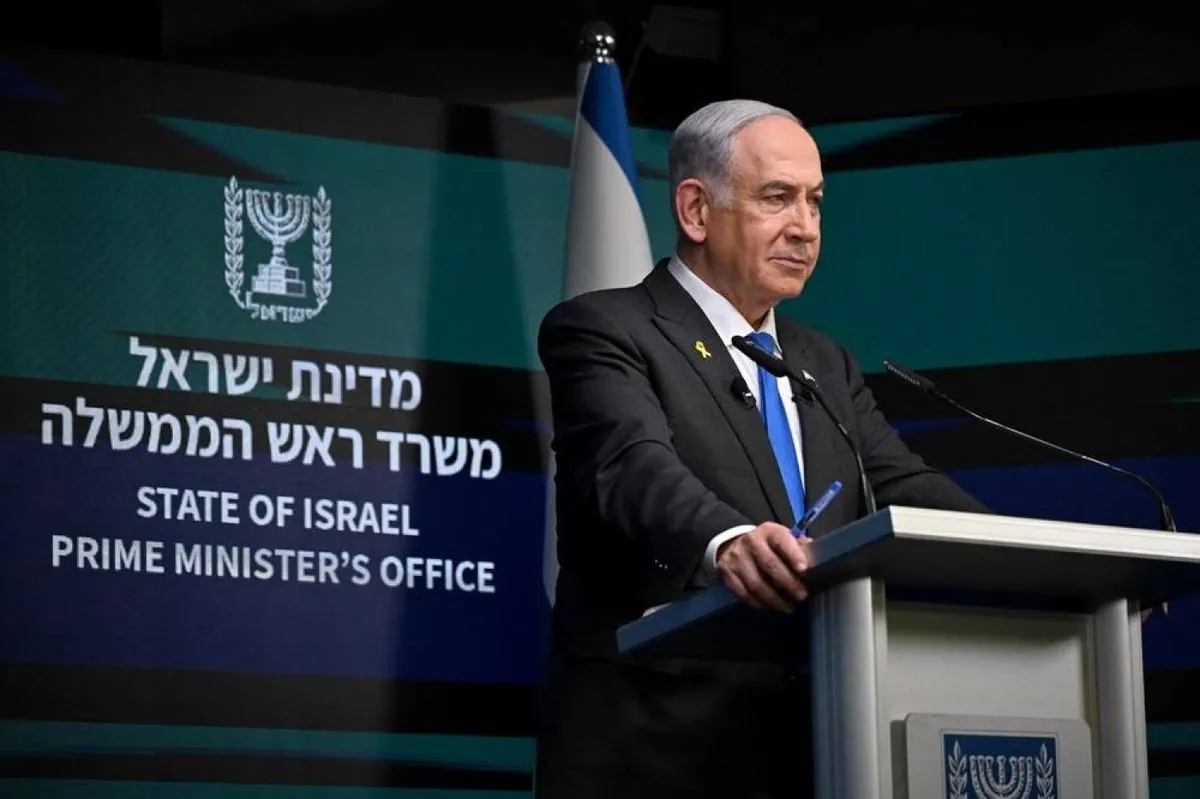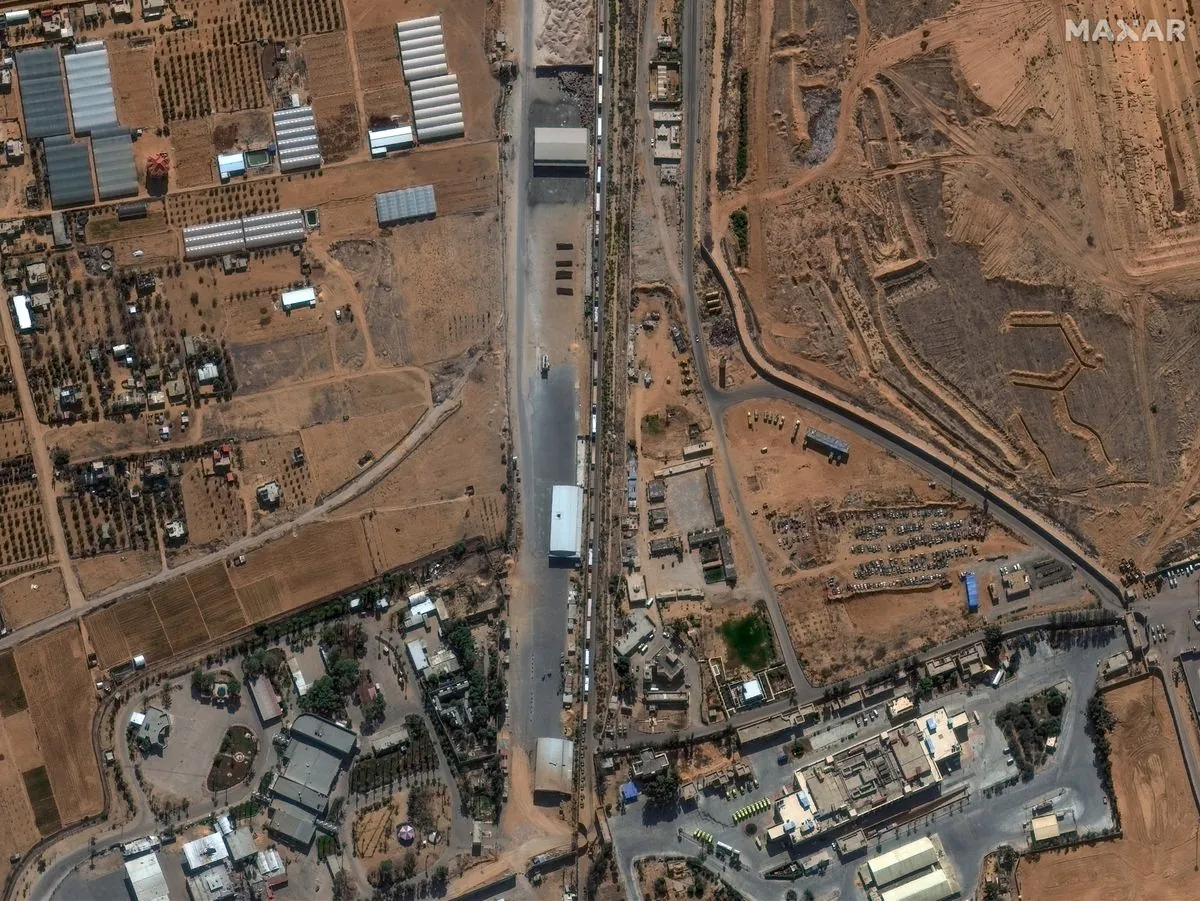Netanyahu Firm on Gaza Border Control, Complicating Ceasefire Talks
Israeli PM insists on controlling Gaza-Egypt border, hindering ceasefire negotiations. US proposes new deal as hostage families intensify pressure for agreement in 11-month conflict.

Benjamin Netanyahu, Israel's Prime Minister, has reiterated his stance on maintaining control over the Gaza-Egypt border, a position that is complicating efforts to reach a ceasefire agreement in the ongoing conflict. This statement comes as the war approaches its 11-month mark, with tensions escalating and pressure mounting from various quarters.
The area in question, known as the Philadelphi Corridor, is a 14-kilometer strip of land along the Gaza-Egypt border. Israeli forces seized control of this area in May 2024, citing security concerns. Netanyahu argues that this control is crucial to prevent Hamas from rearming through smuggling operations.
"Gaza must be demilitarized, and this can only happen if the Philadelphi corridor remains under firm control."
The Prime Minister's position has faced criticism from multiple fronts. Hamas, which has governed the Gaza Strip since 2007, demands a complete Israeli withdrawal as part of any multi-phase truce deal. Egypt, a key mediator in the negotiations alongside the United States and Qatar, has called for a concrete timeline for Israeli troop withdrawal from the corridor.
Notably, the United Arab Emirates, which normalized relations with Israel through the Abraham Accords in September 2020, has also expressed disapproval of Israel's stance. This criticism from a recent diplomatic ally underscores the complexity of the situation.

The Gaza Strip, home to approximately 2 million people, has been under a blockade by Israel and Egypt since 2007. It is one of the most densely populated areas globally, covering just 365 square kilometers. The region faces severe economic challenges, with one of the highest unemployment rates worldwide.
Families of hostages held by Hamas have intensified their demands for Netanyahu to agree to a deal. Their urgency increased after Hamas reportedly killed six hostages last week during what appeared to be an Israeli rescue attempt. Public pressure has mounted, with hundreds of thousands of Israelis taking to the streets in recent days, calling for an agreement to bring the remaining hostages home safely.
Despite this pressure, Netanyahu remains firm in his position, stating, "I can understand the torment of families, but the responsibility of leaders is not merely to share the sentiment, the emotion, but also to exercise judgment."
The United States, which provides significant military aid to Israel annually, is developing a new proposal for a ceasefire and hostage release. This initiative aims to break the long-standing deadlock and bring an end to the conflict that began with Hamas's attack on Israel on October 7, 2023.
As the situation continues to evolve, the international community, including the United Nations, has repeatedly called for a ceasefire. The ongoing conflict and blockade have exacerbated the already challenging living conditions in the Gaza Strip, highlighting the urgent need for a resolution.


































